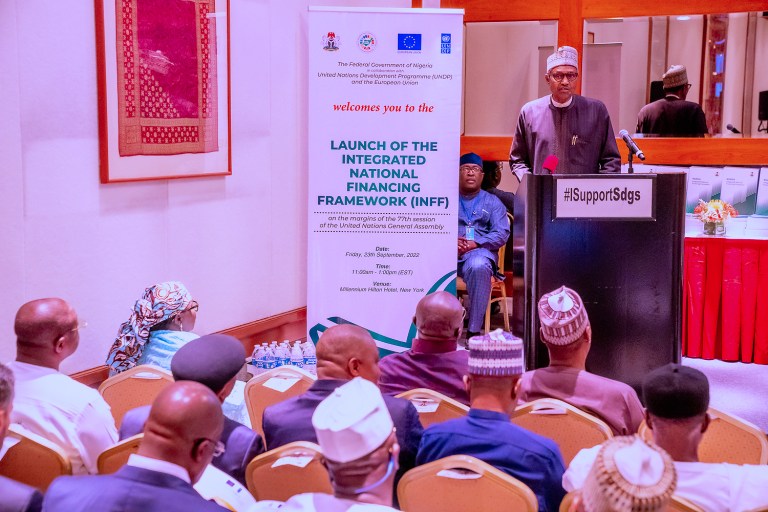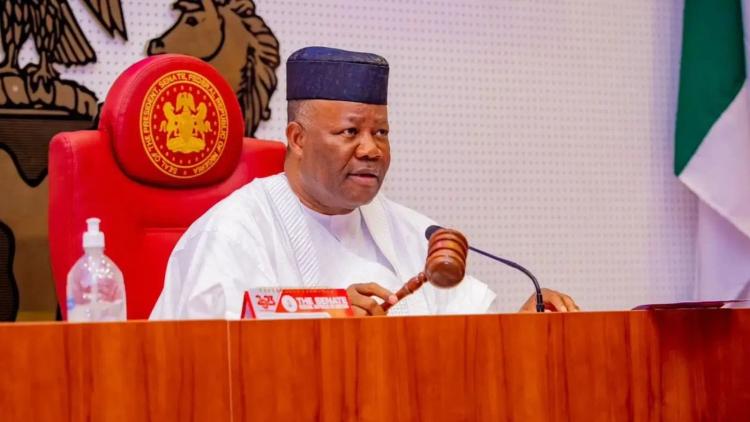For Princess Adejoke Orelope-Adefulire, the pioneer Senior Special Assistant to the President on the Sustainable Development Goals SSAP-SDGs launching of special programs had become synonymous to the handlers in Nigeria in the last seven years down the line, when the UN SDGs was launched and initiated across the globe, aftermath of 70th United Nations General Assembly UNGA session.
This was at the backdrop of policy thrust of the global intervention agency that boarders on 17 goals, 169 targets among many other social services that had provided more leverages to the drastic reduction of poverty, diseases, hunger, empowerment, employment, equality and women emancipation among many others.
With strict compliance to counterparts fundings from sub-national level, SDGs in Nigeria launched the highly embraced Conditional Grant Scheme CGS that was adopted across the country, using 16 states in the six geopolitical zones as pilot scheme, with investments in Water Sanitation, Education, Empowerment, Health, among others social services with a whopping amount running into billions, that improved the well being of average Nigerians across the states.
Before the CGS launch at the banquet hall of the Presidential villa, SDGs under the presidential aide had launched a wholistic approach of the program domesticated in Nigeria, known as “SDGs Model ” a home grown model to consolidate and drive results of the program across the country in line with template of the global partners, the CSO’s and Private Sector Advisory Group PSAG among other stakeholders.
The SDGs model had become a rallying point adopted by the CSO’s,the watchdog of the society and recommended for all Ministries, Departments and Agencies, states and local government areas as a working document.
The decade of action, 2020-2030 global agenda designed to step up SDGs programs across the continent with Nigeria not in exception kick-started in 2015 soon after the 70th UN General Assembly declaration and migration from MDGs to SDGs.
For SDGs leadership in Nigeria under the presidential aide, it was a serious business tackling headlong the ‘decade of action’ agenda that encapsulated all forms of social stratification and disequilibrium as well as denials across the world, with particular reference to the developing countries like Nigeria, and underdeveloped ones.
This had graduated to the launching to streamline and prioritized development projects/ activities across the continent through the realignment of the National statistical System NSS in collaboration with the hub of data analysis in Nigeria, the National Bureau of Statistics NBS.
SDGs in Nigeria under the management of Princess Adejoke Orelope-Adefulire was the first in Africa to chart a new course towards socioeconomic development in line with highly prioritized and identified projects to reduce to the barest minimum the effects and dearth of social services, so as to to guarantee social protection and security for Nigerians.
Soon after the major breakthrough in collaboration with NBS, SDGs also carried a wholistic debut on SDGs 3, 4 Goals that boarders on Health care system and quality Education when it launched the independent evaluation reports at the banquet hall of of the Presidential villa.
This ranked Nigeria among the first countries in the world, the first in African continent to embark on special vehicle that gave special attention to Health and Education after COVID pandemic that ravaged both the world economies and attracted high rate of social crises.
Aside guiding the Ministries, Departments and Agencies in Nigeria towards tapping from it’s working template, the global body in Nigeria had collaborated with similar agencies among which was AUDA-NEPAD through awareness ,seminars, symposiums, workshops and talkshops to pursue vigorously the two most prominent agenda of SDGs 2020-2030 and AUDA- NEPAD 2063 agenda.
SDGs has also collaborated with organised private sector, civil society organizations CSOs, public spirited organizations, and corporate entities to drive towards sustenance the 17 goals of the program with particular attention to Nigeria.
With positive collaboration from these partners, and understanding from the private sector advisory group PSAG, the global agencies, health, education, empowerment, and other social services are being provided using the SDGs model.
The recent launch of Integrated National Financing Framework INFF in the last 77th UNGA by President Muhammadu Buhari in the presence of world leaders climaxed not only series of launchings embarked by SDGs in Nigeria, but showcased the domesticity of the program and leadership dexterity geared towards mopping up funds for social services without recourse to other pressing issues.
The INFF is expected to provide funds for SDGs projects and leverage on the window to bridge the widening gap of underdevelopment occasioned by COVID pandemic, economic downturn and recession, not minding the great achievements made by the global program in the last seven years.
Having achieved the major breakthrough, there is no doubt that the current leadership ‘under the SSA-SDGs to Nigeria’s President, Princess Adejoke Orelope-Adefulire had taking the global program beyond mere rhetorics , but geared towards solidifying the permanent solutions already put in place by the current handlers, in line with the 17 Goals and 163 targets among others interventions, that will be geared towards finding a lasting solutions to poverty, hunger, drought and inequality among many other daunting issues.
Yusuf writes from Abuja, and can be reached on yus.abubakar3@gmail.com.





